国内だけでなく海外にも情報が届いてほしいと思い、「大手メディアが黙殺するれいわ新選組 彼らが語った出馬への思い」の英語版を掲載します。翻訳家である早川健治氏に翻訳して頂きました。この場をかりてお礼申し上げます。
[Translator’s Note: Readers are encouraged to take a quick look at the Wikipedia articles on Reiwa and Shinsengumi for context. For reference, 100 JPY is roughly 1 USD.]
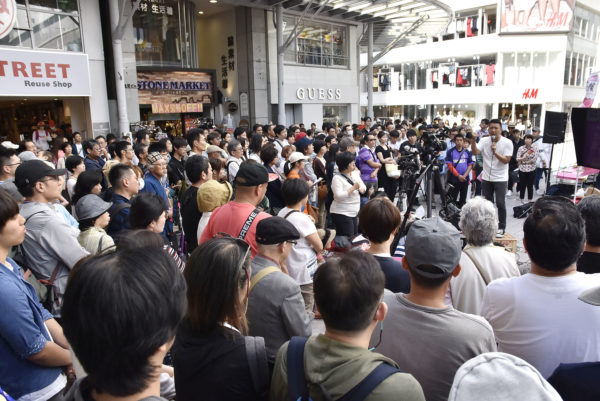
Reiwa Shinsengumi Silenced by the Media, Energized by the People

Tarō Yamamoto
With the kickoff of the Japanese House of Councilors election [toward the July 21st voting day], the battle has begun within an almost eerily silent atmosphere. While disillusionment with politics is deepening among the Japanese people, support for the traditional majority and minority parties is waning. Just to illustrate this trend, in recent national elections, the approval rating for the Liberal Democratic Party (LDP) among all voters was a mere 17%, and it was only with the help of Kōmeitō and Sōka Gakkai that the LDP was able to win around 25% of the vote and take two-thirds of the Diet. Over the last six years, since Abe returned to power, the government has been making a plethora of controversial moves, including the US-Japan Security Treaty updates; consumption tax hikes; the Tran-Pacific Partnership; negotiations around the US-Japan Free Trade Agreement; reactivation of nuclear power plants; policies on healthcare, pension, poverty, and unemployment; the destruction of parliamentary democracy and sovereignty; cronyism and the privatization of politics; and so on. Today, Japan is faced with the issue of how to turn around this dying political structure which has become utterly detached from the people, of how to galvanize politics by sending a tremor through the lukewarm parliament. In this political climate, Tarō Yamamoto, a politician notorious for his combative style, has founded a new political party, the “Reiwa Shinsengumi.” Yamamoto explains the purpose of the party as one of staging a real confrontation with the parliamentary establishment. The party has gathered over 300 million JPY (3 million USD) in donations, has nominated ten candidates for the upcoming elections, and is attracting more and more public attention. While the major media companies maintain silence, the party continues to make its presence felt among the people. In this article, we take a closer look at the thoughts of each of the nine candidates as they step into the battlefield.
Tōru Hasuike
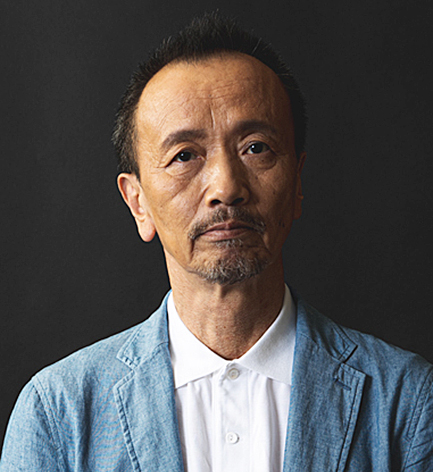 Tōru was born on January 3rd, 1955. He is a former employee of Tokyo Electric Power Company, and former Head of Office at the Centre of Communication for Abduction Victims and Their Families. With 32 years of experience working in TEPCO’s nuclear power division, Tōru has been vocal about the reality on the ground of nuclear power operations. He has analyzed the Fukushima disaster from the point of view of an involved worker. Tōru is now actively opposed to nuclear power.
Tōru was born on January 3rd, 1955. He is a former employee of Tokyo Electric Power Company, and former Head of Office at the Centre of Communication for Abduction Victims and Their Families. With 32 years of experience working in TEPCO’s nuclear power division, Tōru has been vocal about the reality on the ground of nuclear power operations. He has analyzed the Fukushima disaster from the point of view of an involved worker. Tōru is now actively opposed to nuclear power.
Tarō Yamamoto and I go back many years. We met at a recording session of a television program after 3.11. In Japan, it is still considered taboo for entertainers to talk about politics, but Yamamoto did what was in his heart and pioneered a new style in national politics. Even back then, I felt respect toward him for his anti-nuclear stance. At the time, he was known as the “prince of the anti-nuclear movement,” but over the last six years he has worked on a variety of different policies and initiatives, serving the Japanese people and always looking at things from the people’s perspective. He says that if we continue with business as usual, not only the country itself but also humanity as a whole is headed toward destruction. I deeply sympathize with this sense of emergency.
I was living like a hermit in Kashiwazaki, Niigata, when one day Yamamoto-san appeared at my doorstep and asked me to join the fight. I told him that if I were to join his group then the negatives might outweigh the positives, but Yamamoto-san eventually managed to persuade me to change my mind. Since then, I have been dedicating myself to making his project a success.
Living in the countryside, I experience first-hand the gap between the so-called “local regeneration” policy and its reality. The countryside is dying, truly. My guess is that many rural towns are facing a similar state of devastation. My family home is about three kilometers away from the Kashiwazaki-Kariwa Nuclear Power Plant. The power plant has deeply polarized the local people. In fact, not only polarization, but, more seriously, there also is discrimination. It is unacceptable that the mere presence of a nuclear power plant leads to discrimination, but the reality is that the local people are increasingly withdrawing into themselves and losing vitality. What surprised me the most was this: one day, I asked a neighbor whether it was taboo to talk about the power plant in open daylight, and the neighbor replied that indeed, it was worse than taboo, it was bad manners. I was shocked by the neighbor’s choice of words. I felt strongly that something had to be done.
As the population continues to migrate to and concentrate in Tokyo, Niigata is also being drained out. A sizeable subset of graduates from local universities are moving to Tokyo, and local employment is going down. Even within the prefecture, population tends to concentrate in the prefectural capital. Many people say, with gallows humor, that “if we keep on going like this, we’ll be left with a convenience store, a ramen stand, a pharmacy, and nothing else.” Again, this gave me a shock, and I felt that it had to be fixed.
Our generation used to be characterized by the phrase “The 100-Million Middle Class.” Yet, as Yamamoto-san has been pointing out relentlessly, problems of inequality and poverty persist. What happened to the “100-Million Middle Class”? Why is there now even a new phrase, “High-Class Citizen”? I began having some serious doubts about whether this situation was sustainable. Even when we take nuclear power policy as an isolated case, we can already see how every move made in politics is an act of putting off or ignoring a problem until some later moment in time. If we carry on like this, we are assuring the destruction of the country, not to mention the destruction of the humanity of the people. I was crushed by anxiety as I wondered whether future generations will be able to find life truly worth living.
Today, in order to enter politics, one must overcome massive obstacles. The required entry fees are massive: 6 million JPY for running in proportionally representative constituencies and 3 million JPY for running in electoral constituencies. People who are truly passionate about politics are barred from entering. We need to rip the door open and show them a way forward. The hurdles are so high right now, with the result that only the vested interest candidates get to run. Once they run, all they care about is winning. “Is that really what politics is about?” we asked, and that is why the Reiwa Shinsengumi has joined the arena. I agree with the group that we should mobilize the energy and donations from ordinary people in order to diminish the barriers. Yamamoto-san has so far been fighting as a lone wolf. I felt strongly that we should not keep him alone.
“What can one, two, or even ten people do?” some might say. To which I reply with passion: if all of us did nothing today, what do we expect to be different tomorrow? These days, many people are becoming more and more interested in new political movements. Even by pushing the current voter turnout rate of 50% up to 80%, I think new political parties have an excellent chance to break through. Of course, we never know whether we will succeed this time around and whether Yamamoto-san and the group will begin implementing new policies, etc., but still, I think that it is important for us to take that first step and make a start.
In terms of age, I am about the same as Prime Minister Abe, which means that from Yamamoto-san’s perspective I might look like his father. Yet over the last 65 years, many, many people have supported me as I made my mistakes on the way. I truly hope to be able to give something back to them, as well as to the Japanese people, through my candidacy.
Ayumi Yasutomi
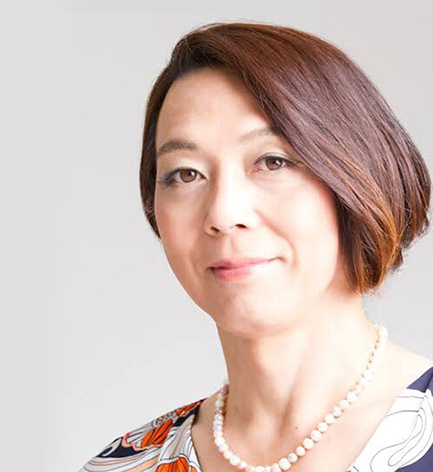 Ayumi was born on March 22nd, 1963, in Osaka. She is Professor at the Institute for Advanced Studies on Asia, University of Tokyo. After graduating from Kyoto University with a degree in economics, Ayumi has worked at the Sumitomo Bank, and then went on to complete a graduate degree program at Kyoto University. She has been invited by Michio Morishima at the London School of Economics and Political Science (LSE), to work as a visiting researcher in the UK. She earned her PhD in economics at Kyoto University. Her thesis, “Finance in Manchuria,” won the 40th Nikkei Prize for Excellent Books in Economic Science.
Ayumi was born on March 22nd, 1963, in Osaka. She is Professor at the Institute for Advanced Studies on Asia, University of Tokyo. After graduating from Kyoto University with a degree in economics, Ayumi has worked at the Sumitomo Bank, and then went on to complete a graduate degree program at Kyoto University. She has been invited by Michio Morishima at the London School of Economics and Political Science (LSE), to work as a visiting researcher in the UK. She earned her PhD in economics at Kyoto University. Her thesis, “Finance in Manchuria,” won the 40th Nikkei Prize for Excellent Books in Economic Science.
I find contemporary society to be a “luxurious hell.” While glamorous in appearance, once you step inside, people choke and gasp for a breath of fresh air. People are slowly poisoned to death, but the poison contains Champaign—that is where we are today. Unless we change this situation, I fear that we will never achieve a fulfilled life and that Japanese society will start to collapse.
In my professional work, I research the economic history of Manchuria. For quite a while now, I have been haunted by the vision of an elite intelligentsia dragging the honorable, hard-working people to hell. I have grappled with the problem of how to prevent that vision from materializing.
In ordinary electoral politics, candidates are supposed to present and defend specific policies. But I believe that we are at a stage where change at the level of individual policies is not enough. We need to dig deeper and change the fundamental principle of politics.
What is the fundamental principle of politics? We, and this luxurious hell we live in, are a system called the nation-state. In my view, this system is an amalgam of the British capitalist system of production and the French civic national army. This system began to fail around the First World War. One hundred years have passed since. Still, we are trapped in a situation where the same system is still at the foundation of our society. This, in my mind, is the essence of the problem. And this system is about to collapse due to a huge wave brought about by the Internet, an aging population, the rise of the other Asian states, and so on. That is my diagnosis of where we are today.
In our time, the purpose of society—in other words, the fundamental principle of politics—is in the maintenance of the nation-state system or, in one phrase, “rich nation, strong army” [Translator’s Note: see Fukoku-Kyohei]. Because the slogan “rich nation, strong army” is outdated, politicians talk instead about economic development or the percentage of GDP, but they are all essentially about the same thing.
We need to move to a different fundamental principle.
In my view, the new fundamental principle ought to be the protection of children. Society as such has originated as a way to protect children, not ourselves. Otherwise, humankind would have long since gone extinct. I am only calling for all of us to recognize and return to the universal principle of life and humankind. Once we start from there, I think we have a chance to break free from the hell of the nation-state.
By once again grounding all political judgments on the idea of the protection of children—which, by the way, is such an obviously plausible move—we might find a way to liberate our society from its hostility to life and to extricate ourselves from our contemporary crises.
We also need to replace the notion of the economy with the phrase “everyday life.” I find it ridiculous that economic policies are expressed in terms of GDP. When you look at reality, the essence of rapid economic growth is the movement of people’s homes. If somebody who used to spend 30,000 JPY per month by living in the countryside decides to move to Tokyo, this person would need to earn hundreds of thousands of yen to make a living. If this person moved, therefore, there would be at least a tenfold increase in GDP. After people moved around in Japan, people have also moved around in China, and it is thanks to this going on for 30 years that our economy has managed to survive up until now. Yet, very soon, the world’s largest pool of people in China will also no longer be able to move homes.
Rapid economic growth meant building the Tokyo tower, running bullet trains, and hosting the Osaka Expo. People in power think that they can achieve another rapid economic growth by building the Tokyo Sky Tree, running linear motor cars, and hosting the Tokyo Olympics or perhaps another Osaka Expo. But it is too late. People have already moved their homes, so the rest will be nothing but empty ritual. The government is squandering tens of trillions of yen on this ritual practice. This is nothing but mad speculation.
We need to stop and rethink what it means for each one of us to enrich our everyday lives. The underlying value of all of our laws and ideologies, the thing we call the economy, is something which was historically established in response to the British capitalist system of production. The notion that its retirement will imply the end of the world is nothing but an illusion.
We need to think deeply about how we should courageously reconstitute our everyday lives and protect and nurture our children. Money alone cannot solve this problem. What we need is a spirit of mutual support.
We are increasingly becoming unable to forge and maintain lasting personal relationships. This is because the ability to do so is an inconvenience to the capitalist system of production. They say we have no use for a person who decides to take a day off to take care of a friend. Our economy cannot afford to dispense with people who have no friends but have all the money in the world. That is why we have gradually been losing our ability to help each other. That is why the notion that without making money starvation awaits has been so contagious. Unless we overcome these prejudices, we will never be able to liberate ourselves from this nonsensical world where “poverty amidst prosperity” has become the norm.
Yoshifumi Mitsui
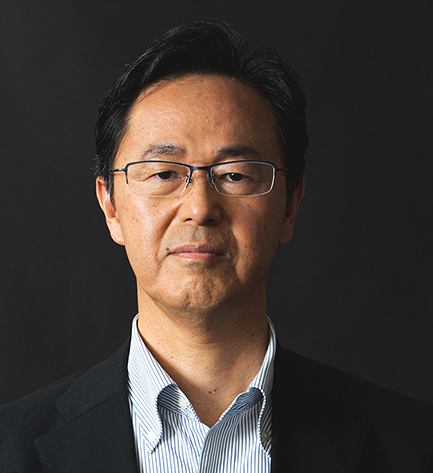 Yoshifumi was born on September 29th, 1956 in Kumamoto. He is a former Banker. He is also a former Shop Owner at Seven Eleven. After graduating from Meiji University with a degree in business administration, Yoshifumi began his career at Mitsui Bank, which then became Mitsui-Sumitomo Bank. He quit his job mid-career to open a Seven Eleven shop in Chiba. In his ninth year as shop owner, his contract was terminated by the company. He currently works in the lightweight cargo industry.
Yoshifumi was born on September 29th, 1956 in Kumamoto. He is a former Banker. He is also a former Shop Owner at Seven Eleven. After graduating from Meiji University with a degree in business administration, Yoshifumi began his career at Mitsui Bank, which then became Mitsui-Sumitomo Bank. He quit his job mid-career to open a Seven Eleven shop in Chiba. In his ninth year as shop owner, his contract was terminated by the company. He currently works in the lightweight cargo industry.
I worked for 27 years as a banker. I was frequently assigned to international projects, which meant that I have spent a lot of my time living overseas. After doing another solo transfer overseas and returning to the country, I finally decided to live a life which was not about the prestige of my bank. I happened to come across the convenience store business, where anyone can start their own shop for just 2.5 million JPY. I liked the idea. With the local population growing older and older, I figured that we could do with an extra shop.
I signed a contract with the leading player in the field (Seven Eleven). What took me by surprise was the fact that things which were not part of the contract started to crop up frequently. At first, the agreement was that it was my duty to keep the shop open for 24 hours, and if I failed to do so then there would be a 2% increase in the fees. In reality, I quickly came to see just how irrational, from a cost-benefit point of view, the 24-hour model was. However, even when I presented my case, the company did not allow me to relax on the hours. Moreover, we were supposed to send every penny of our daily sales to the company. After a while, I asked what was happening to that money, and the company answered that it belonged to them. This made me fume with anger. How was this an independent business? That was when I started to look for friends in similar situations.
It turned out that there were many other people around me who were distraught over similar problems. We gathered and went to the company to ask for a meeting, but the company just kept putting more pressure on us. “If our relationship of trust is going to be broken, we will unfortunately have to terminate the contract immediately.” “In the event that the contract is terminated, you will be charged a penalty fee.” That was what they said. They really trap us into their business, I thought.
Ever since we came together and launched our independent organization, we have been bombarded with stories which went beyond our wildest imaginations. One person had to keep their shop open 24 hours a day, 365 days a year, so that they could not even take a break for their parent’s funeral day. Their family accused them of “caring more about commerce than about family,” but they had to go back to their shop to work. What blew my mind the most was another story, though. We received an email which began like this: “I am now in Aokigahara” [Translator’s Note: Aokigahara is a famous suicide spot]. The email continued: “We keep our shop open 24 hours, 365 days. But we are short of staff and I personally was also approaching my limit, so I asked them to let us take a break, but they would not allow it. That day, when the hour came where I was finally allowed to clock out, the staff member who was supposed to take over did not show up. I felt dizzy, and I ended up walking into this place. I went online and stumbled across this convenience store franchise union, so I decided to contact you just to see what happens.” At that time, I was the Vice Chairperson of the union. I contacted the emailer’s family and managed to take them under police protection.
In this election, I really want to ask publicly why franchise stores need to be squeezed to such an extreme extent. Everybody who signs a fresh contract does so out of a spirit of hope. Yet, once the contract is signed, it turns out that the powerful consistently gets to dominate over the powerless. I am deeply disturbed by the fact that such a thing is possible at all. As our forms of work change, there has been a massive shift from full-time employment to temping. Today, about half of the jobs out there are temp jobs. Not only that, but these days they use rhetoric such as “become a business owner!” so that they can change your employment contract to something other than that of a normal worker. As convenience store owners, we are portrayed as business owners, but at the same time we are sucked into a business system which makes us provide an infinite quantity of labor for no compensation. We cannot allow this to become the norm.
I used to live overseas, so I understand just how high the quality of Japanese labor really is. I therefore wonder why the Japanese nation abuses such hard-working people on the ground to such an extreme extent. In my view, Japan has lost its soul. Japanese people long ago used to say that we should challenge the powerful and support the powerless. Yet today, we have been reduced to talking about winners and losers. I really want to ask what people mean by winning and losing. Through this election, I sincerely hope that we will regain the true Japanese spirit and shift the struggle from competition to friendly rivalry. I decided to run because I wanted to make this point personally by fighting this battle alongside Yamamoto-sensei.
During the time when the Democratic Party was in power, there was a window of opportunity to pass the Franchise Act. Kitano-sensei, Emeritus Professor of Hitotsubashi University, recruited three other professors and put together the Franchise Act. I handed Yumiko Himei-sensei a copy of it too. Himei-sensei then brought that copy to the then apex figure of Japanese politics, Ichirō Ozawa. Glancing at Professor Kitano’s name, Ozawa-sensei said “no.” He explained that he recalled how the professor wrote an essay in a tabloid magazine which criticized Ozawa-sensei’s methods in politics. Ozawa-sensei also added another condition. “You call yourselves a union, but how many members do you have?” We had around 300 members at the time. “Well, once you grow to 1,000, perhaps we can discuss bringing this bill to parliament.” At that moment, I felt that something was awry about our politics. Did we always have to repay for favors with our votes?
I think that democracy is about listening to the truth, even when that truth is coming from just one single person. Of course, whether we should all follow that person’s argument is another matter, and we should decide that collectively. Still, democracy means listening to the views of even a single individual. We are mistaking democracy for majority rule. The people must be at the center of our collective thought process, not just the political leaders.
Eiko Kimura
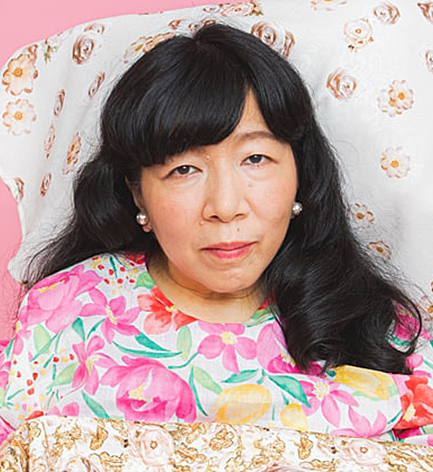 Eiko was born on May 11th, 1965. She is Chairperson at the National Union of People Demanding Public Care Guarantee. She is also Managing Director at the Association for Rethinking Homecare Guarantee for Disabled People in the Metropolis, and Head of Office at Tsubasa Center for Independent Living.
Eiko was born on May 11th, 1965. She is Chairperson at the National Union of People Demanding Public Care Guarantee. She is also Managing Director at the Association for Rethinking Homecare Guarantee for Disabled People in the Metropolis, and Head of Office at Tsubasa Center for Independent Living.
I was not supposed to be here, but I am now. Really, my fate was to graduate from a special needs high school and then get housed into a facility. I became disabled eight months after birth. Since childhood, I have spent my life in facilities and special needs schools. Until I stepped out into my local community at age 19, I grew up in a totally insulated environment detached from society. Only after stepping out did I manage to make friends with able-bodied people. I have always fought against the idea of being kept alive in a facility and of being caged up until death. That is why it is wonderful that I am here standing before you to run as a candidate for the House of Councilors.
My disabled schoolmates are still all living in facilities. This goes back decades. Some of them have been there for 50 years. For us severely disabled people, we are put into facilities when our parents become unable to care for us, and it has been considered perfectly normal that we would end our lives in these places. But disabled people do not enter facilities because they want to. They do so because they have nowhere else to go. As somebody raised in a facility, I knew nothing about society, and it was beyond my wildest dreams to live an independent life in my local community. Life in the facility was devoid of freedom, totally managed, and, on occasions, even abusive. I could not take it anymore, so, with the help of my seniors who had already managed to achieve independence in their local community, I started living a communal life in Kunitachi when I turned 19. It felt like a miracle then. And being here today also feels like a miracle.
The reason why I decided to run was because I thought that it made sense to bring my activism for disabled people to the national level by joining national politics. Until now, my life has been about working with my fellow disabled people and actively demanding that the government establish a care service insurance system which actually helps communal life. All I wanted to do was to go out into my local community alongside my able-bodied friends and live as an ordinary woman, but as soon as I took the first step in that direction, I realized that fighting for a care service insurance system which actually serves disabled people was the only way to survive. Since I want to defend life in my local community, the reality is that I will probably have to continue this activism until the day I die. Every day, I go out and fight with my disabled friends.
In 2003, the whole system shifted from measure-based to contract-based. The government thus abdicated their responsibility in helper dispatches and thrust the whole task onto the private sector. There is even talk at the national level about unifying the disability welfare system with the care insurance system, which will surely destroy the ways of life of disabled people living in communities. Take a disabled person, living alone, who may have been guaranteed the necessary number of hours with a home helper under the disability insurance system. When this person turns 65, they are transferred to a care insurance system. Their care time will then be reduced, and they would no longer be able to spend time outdoors or even take a bath. There have even been cases where a person had to sleep through the night on their wheelchair because they could not return to bed by themselves, which then resulted in bedsores. There are people who only get an hour per day of care and so can only have one meal a day. There is a shortage of staff at the national level, but care work is intensive yet very poorly paid. No wonder people do not want to join this sector. Therefore, even after staking their lives to escape their facilities to start living independently, due to the lack of human resources on the care service provider’s end, some people had to return to their facilities during holiday seasons.
More and more people are put in such difficult situations. When a disabled person turns 65, they are no longer considered disabled. They are categorized as the elderly, and their lives become threatened because of cuts in care services which they used to rely upon. Each disabled person has a unique kind of disability. Each person requires a different form of care. When a person who has depended upon a helper who understands their needs very well, and then at the age of 65 suddenly gets their hours cut, their life literally becomes threatened. That is the life they are forced to live. The government allegedly wants to encourage more disabled people to move into their communities, but the actual policies destroy the disabled people’s lives and force them to go back to the facilities. Such policies are a clear violation of human rights and a blatant case of discrimination.
I decided to run when I met Yamamoto-san during my activism. He asked me to bring my personal experience as a disabled person directly into the Diet and fight together. I seized upon the opportunity for a severely disabled person like myself to have a voice in the Diet, and I made the decision to become a candidate. By entering into politics as a disabled person with a personal story to tell, I hope to improve, as much as possible, the harsh realities which my friends are facing, realities which make them suffer and shriek.
From the moment we become disabled, a disabled person is separated out from the rest in schools, workplaces, homes, recreational spaces, and many other places. This is how barriers grow within cities as well as in people’s hearts. The more we are separated from the rest, the worse discrimination becomes. As a result, I find it very difficult to live in our society today. In fact, I submit to you that such a society makes it difficult for everybody to live in. On the other hand, if we were to grow up together from early childhood, study together, play together, and support each other, the society that results from this would be a place where everybody feels better living. That is my belief, for which I intend to continue fighting.
Yoshimasa Nohara
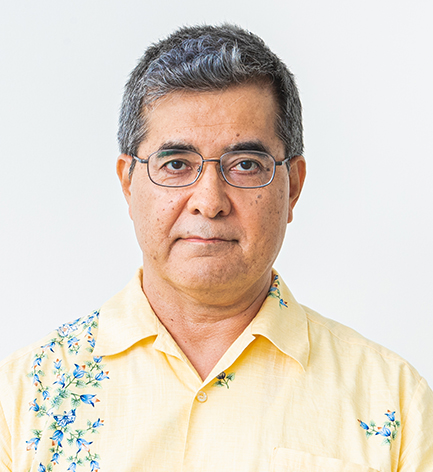 Yoshimasa was born on January 16th, 1960. He is Member of the Senior Division of Sōka Gakkai Okinawa.
Yoshimasa was born on January 16th, 1960. He is Member of the Senior Division of Sōka Gakkai Okinawa.
I would like to express here some of my strongest convictions. The original foundation of Kōmeitō was the idea of speaking for the people, struggling with the people, and being kept in check by the people. However, through its coalition with the LDP over the last 20 years, Kōmeitō has become steeped in power, to the point where it has utterly forgotten its original spirit of being the salvation of the people.
It was because Kōmeitō supported the new US-Japan Security Treaty that Japan is now able to send soldiers abroad. Kōmeitō has also supported the Anti-Conspiracy Bill, which is also known as a contemporary version of the Peace Preservation Law. As a party who has celebrated peace and welfare since its first day, Kōmeitō is now passing these jingoistic bills and laws which oppress the people. This is clearly wrong. Originally, Kōmeitō was supposed to keep the LDP in check. Instead, the party is now joining the LDP and becoming increasingly reckless. Kōmeitō today seems to be going against the philosophy of peace of honorary president Ikeda. This is very dangerous, and it must stop.
What is more, Sōka Gakkai, the largest base for Kōmeitō, is still supporting the party despite its inconsistent behavior. It seems to me that members of Sōka Gakkai are confusing true faith with blind obedience to their superiors and organization.
The true guide for the thought and practice of each Sōka Gakkai member should always be the Gosho [Translator’s Note: the sacred text of Nichiren Buddhism] as well as the leadership of the three founding presidents, Makiguchi-sensei, Toda-sensei, and Ikeda-sensei. In the Gosho, there is a section called the Nikko Reikai Okibumi [Translator’s Note: this is Nikko’s annotations to Nichiren’s teachings written as Nikko’s will], which contains the following passage: “The teachings of a Shinto priest should not be followed if they turn out to be arbitrary inventions which go against the doctrines of Buddhism.” It also says: “The Shinto priest has an obligation to challenge even the decision made by the majority in so far as this decision goes against the doctrines of Buddhism.”
In other words, even if a decision comes from the very top of an organization, even if a decision comes from the majority, if that decision goes against the teachings of Buddhism, one should not follow that decision. This was a point repeatedly emphasized by Sōka Gakkai during the sectarian controversies. As for members of Sōka Gakkai, I sincerely hope that you will carefully consider the teachings of the Gosho and the instructions of the three founding presidents and arrive at sound judgment and action.
Next, I would like to say a few words about the elections in Okinawa. The Okinawa prefectural office of Kōmeitō says, at least in words, that it is opposed to the construction of the new Henoko naval base. And yet, in the Okinawa mayoral election of September 2018, the by-election for the House of Representatives in the third district of Okinawa in April 2019, and in the electoral district for the House of Councilors election to be held this month, the same office has consistently supported candidates who are ready to allow the construction of the new naval base. It is clear as daylight that this displays a lack of consistency and a deep contradiction. Not only that, but when the prefectural government of Okinawa canceled the permission for reclamation work related to the naval base construction, it was Ishihara, the Minister of Land, Infrastructure, Transport, and Tourism (MLIT) and member of Kōmeitō, who overrode this decision. Moreover, Kōmeitō in Osaka was campaigning against the Osaka Metropolis Plan during the mayoral election, yet as soon as they lost the election, they quickly flipped and started licking the boots of the Ishin Party. This was because the party was scared that Ishin would nominate opposition candidates in six electoral districts within the Kansai region. I find this to be a foolish and shallow decision based solely on self-protection, devoid of any ideals or beliefs. No wonder the party is today called a “chameleon party.”
Why has the Kōmeitō come to act so divergently from Sōka Gakkai? I think that the root of the problem is the resignation of honorary president Ikeda on April 24th, 1979. On that day, I think Sōka Gakkai was hijacked by the new board led by president Harada. Ever since, the group has been controlled by Harada and other traitors. Since that day, honorary president Ikeda has ceased to have any real power in how the organization operates. That is why the group has now degenerated into such nonsense. Kōmeitō candidates cannot receive endorsement unless they also receive recommendations by the Sōka Gakkai board, which means that these candidates have to obey for the sake of their own personal careers even while knowing full well that what they are doing is inconsistent.
In my view, honorary president Ikeda’s resignation was engineered by members of the current board led by president Harada. Seikyo Shinbum [Translator’s Note: the official newspaper published by Sōka Gakkai] always writes about how honorary president Ikeda is alive and well, but I seriously doubt this. We rarely if ever see an actual photograph of him in a healthy state.
The photograph which was printed in the paper around three or four years ago was such a sloppy piece of work that even an amateur can tell that it was fabricated. Since his cerebral infarction stroke, honorary president Ikeda has been becoming increasingly ill by the day, to the point where now he probably cannot get out of bed. The current board is taking full advantage of this by using the charisma of the honorary president as a tool for winning votes through the Sōka Gakkai organization machine.
This is reminiscent of how the military used the Emperor before and during the World Wars to lead the country into destruction. Doctor King, who led the civil rights movement in the United States, spoke the following words: “The ultimate tragedy is not the oppression and cruelty by the bad people but the silence over that by the good people.” There is much to learn from this deep insight.
Conscientious members of Sōka Gakkai, I would like to submit to you the following. For how much longer do you plan to maintain the silence of the good people? Let us muster our courage and call out what is misguided as misguided and what is wrong as wrong. Kōmeitō should return to its original humanist principle of peace and welfare. Sōka Gakkai should return to its original position of the teachings of the Gosho and the leadership of the three founding presidents. In order to change our contemporary society, which increasingly is taking on the hue of an oncoming fascism, and in order to eradicate misfortune and tragedy from this world, I would like to join forces with my friends at Reiwa Shinsengumi, led by Tarō Yamamoto.
Tsuneki Ōnishi
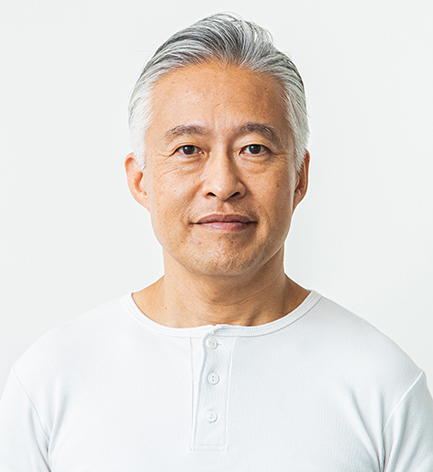 Tsuneki was born on February 29th, 1964, in Tokyo. He is former FX Trader at JP Morgan. After graduating from Sophia University with a degree in English, Tsuneki went on to study political science at Seattle University. After that, he worked as an FX Trader at JP Morgan, and then later became CEO of Infomania Inc. Currently he is Leader of the Fairness Party.
Tsuneki was born on February 29th, 1964, in Tokyo. He is former FX Trader at JP Morgan. After graduating from Sophia University with a degree in English, Tsuneki went on to study political science at Seattle University. After that, he worked as an FX Trader at JP Morgan, and then later became CEO of Infomania Inc. Currently he is Leader of the Fairness Party.
I am here for a single purpose. Over the years, I have been pointing out just how bad our current financial system is. As you probably know, beneath all of our problems—inequality, poverty, disease, war, etc.—lurks the problem of money. And you probably feel that something is not right in finance. I worked in the financial industry with JP Morgan for a long time. I have seen first-hand just how bad our financial system really is.
During the 2008 financial crisis, I thought that this was all finally coming to an end. Creating fraudulent financial products, issuing money in such enormous quantities without any real backing, and so forth. Yet, the money so created has not disappeared, and it has been weighing down on the ordinary lives of you the people. This year, we are seeing a global movement to fundamentally change this broken financial system. For example, look at the Yellow Vest Movement which began last year. People are starting to realize what the true causes of all our problems are.
If you take a look at the manifesto of Reiwa Shinsengumi, you will find policies such as the abolition of the consumption tax, forgiving student loan debt, a 1,500 JPY minimum wage guarantee, increase in the number of public sector employees, and the distribution of money to the people. When we propose such policies, there is always a person in the back who shouts that we do not have enough resources to do this. Well, try looking up on Google the trends in debt management policies after the Second World War. You will find the debt management policies of the Ministry of Finance from 1965 all the way up to the present. In 1965, the construction bond was introduced. Since then, almost every year, the deficit-financing bond and the construction bond have continued to stay in the red. In short, the country has almost never managed to contain their spending within the means of its tax revenue.
The question then arises as to how the government gets the extra money it needs. The answer is, it creates that money through debt. “Wait, what? Create money with debt?” you might ask. But that is the reality. Money is created with debt. I have always said that that is the root of the problem. For instance, if the government is able to create more money in the form of debt, why is there a problem with getting more financial resources? Does it even need to collect taxes at all? If we take this thought to the extreme, we can even cover all government spending costs solely through debt and stop taxes altogether. That is possible, in fact. Because that is how it has been for decades.
Take a look at the data around the money supply of Japan from 1980 up to 2018. In 1980, the money supply was 200 trillion JPY, while today it is over 1 quadrillion JPY. In other words, it has increased five times over the last 38 years.
As a personal anecdote, when I got my first job in 1986, my starting salary was 200,000 JPY. When my son started working last year, his starting salary was exactly the same: 200,000 JPY. In 1986, the total amount of money in Japan was about 340 trillion JPY. That ballooned into 940 trillion JPY by 2017, which is almost a threefold increase. Yet, despite the fact that over 600 trillion was added to our money supply, the starting salary of our graduates has stayed the same. Why is this? Because companies stopped paying their employees well. Where did the extra 600 trillion JPY go, then? The major factor is the 400 trillion JPY internal reserves of private corporations. How do corporations grow their internal reserves? By not paying you a good salary while paying less in corporate taxes. That is how we have been running things, and that is why the money supply has become so humungous.
The creation of money is not done by the Bank of Japan. It is done through loans. In essence, in our system, every time a bank makes a loan, new money is created. Since this money is accompanied by interest, we are trapped in a system where money and debt have to keep on growing in tandem. That is the only way our system is able to function. But it is impossible to just continue growing the money supply and debt like this. There are only 130 million people in this country. How, then, are the banks supposed to lend more money? It is clear that the machine will eventually come to a grinding halt.
Take a look at the outstanding loans of banks in Japan. After the collapse of the bubble, the banks have become unable to lend. They have had to write off bad debt, relent making new loans, retract credit, and reduce their debt levels. Still, the quantity of money remained the same. Somebody, then, had to take on debt to continue increasing the money supply. But who? The Japanese government has been continuously creating more money by issuing new bonds.
What does it mean to create money through government debt? The general account budget of Japan has a tax revenue of around 50 trillion JPY per year, give or take. It collects 50 trillion JPY in taxes from you the people. It follows that all of your cash and bank account savings decrease by 50 trillion JPY. After that, let us say that the government puts together a 50 trillion JPY budget. When the government spends, it spends through the public employees’ salaries, public project expenses, and so forth. In short, the money is circulated back into the private sector. When a 50 trillion JPY budget is put together based on a tax revenue of 50 trillion, the 50 trillion is recirculated.
What happens, then, when the government decides to put together a budget of 70 trillion JPY? In that case, it is 20 trillion JPY short. It therefore issues bonds worth 20 trillion JPY. It makes the banks buy the bonds. When the banks buy 20 trillion in bonds, the government ends up getting the extra 20 trillion JPY. Where does that 20 trillion JPY come from, though? It comes from your deposits. Yet, even when the banks buy 20 trillion worth of bonds, your deposits do not go down at all. That is because the banks issue the extra money and give the money to the government. What would happen if the government spends the initial 50 trillion JPY and the newly created 20 trillion JPY together? Your deposits, in aggregate, actually see a net increase of 20 trillion JPY. At the same time, government debt is also increased by 20 trillion JPY. Therefore, government debt and your deposit money grow in parallel.
Today, government debt is at 900 trillion JPY, while your aggregate cash and deposit money is at 1 quadrillion JPY. What would happen if we were to repay the 900 trillion JPY government debt by using your deposit money of 1 quadrillion JPY? The answer is that money would disappear. In other words, the notion that government debt can be repaid through tax revenue is a lie. A huge lie. If the government really did such a thing, money would vanish. That is why words such as “we need to increase the consumption tax to help the government repay its debt” and “we do not have the financial resources to do that” are all lies. If we took these words seriously and put them into practice, our whole financial system would collapse. Until now, the people who have been running this country did not even understand such basic things. This is a scandal. It is as if a driver without a license were driving all of you around in an F-1 racing car. We need to thoroughly destroy the way of thinking propagated by these despicable people in power.
I would like to say a few words to journalists who work for the major media companies. Stop writing lies. It is simply impossible to repay government debt through taxes. It is laughable that people are on the boards of major newspaper companies without having such basic knowledge. At long last, we are seeing the rise of a new theory in the United States called the Modern Monetary Theory (MMT). Those who understand MMT have said that the only way forward is for the government to continue taking on debt and expanding the money supply indefinitely. Gradually, the geocentric model is shifting to a heliocentric model. In short, the world is beginning to realize just how mistaken the traditional theories of finance really were.
The new approach to finance which I touched upon here is also incorporated into the policies of Tarō Yamamoto. When we have this debate at the national level, more people will come to wonder whether traditional politicians were simply stupid. “Maybe we should go with Reiwa Shinsengumi, who seems to be the only party who understands the heliocentric model,” the people might say. I intend to put forth a clear and consistent debate platform throughout this election. By doing so, I hope to reach out to people who are not necessarily fans of Yamamoto as well as to people who might have a more conservative bend. This might create a wave at a massive scale. My job is to extend the reach of this movement.
Chihiro Tsujimura
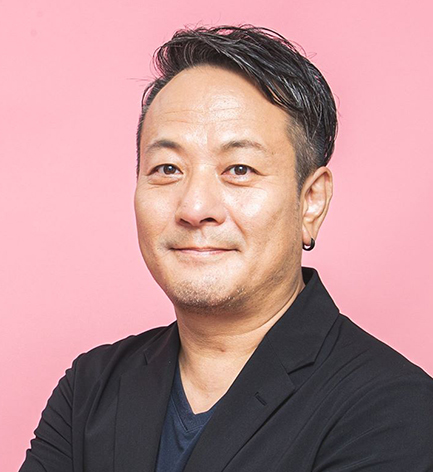 Chihiro was born on November 4th, 1967. He is Staff Member at an NGO in the environmental protection sector.
Chihiro was born on November 4th, 1967. He is Staff Member at an NGO in the environmental protection sector.
I have been working for a long time as a staff member at an environmental protection organization. Until recently, my role was the Head of Environmental Protection. I have been invited to testify in Congress as a specialist in environmental protection, and I have been involved in the amendments of species protection and related laws. Unfortunately, though, my testimony is nothing more than “opinion,” so it does not get reflected in the actual laws.
When you hear the phrase “conservation of nature,” you might vaguely picture a rare mountain landscape or some rare species. That is wrong. True conservation is about protecting the connection between people and nature. That is why I always ask people to live a life within our geographical means. Life within our geographical means, that is what I want to restore. But the Ministry of the Environment is much too powerless to make this happen. Why? Because the laws do not give power to it. It is far weaker than the Ministry of Economy, Trade, and Industry (METI).
Under the Environmental Impact Assessment Law, the Minister of the Environment is not the final decision-maker. That role is played by the MLIT or the METI. The Ministry of the Environment is so weak, it borders on the pitiful. My first priority is to give more power to the Ministry of the Environment. In order to do so, laws need to be updated.
Another problem is that NGOs involved in conservation are also weak. Why? In this case, it is due to lack of funding. Moreover, they do not have the right to sue. Since they do not have the right to file class action lawsuits, all they can do when something is brought to their attention is to wave their hands and dismiss. Meanwhile, environmental destruction is proceeding across the country. For example, when they drill a tunnel through the Akaishi Mountains, they destroy the natural environment not only of the mountains but also of Nakatsugawa and its surroundings. Then there is the Ishiki dam. In this case, ordinary people who just want to live ordinary lives are being harmed for the sake of the convenience of people in urban areas. It is about time that we stop building society on the backs of the suffering of the weak. I really want to change this state of affairs. That is the conviction which led me to run in this election.
I am ready to go all the way. I can no longer return to my former job. I do need your help to win. I am not well known, but I will give it my all.
Yasuhiko Funago
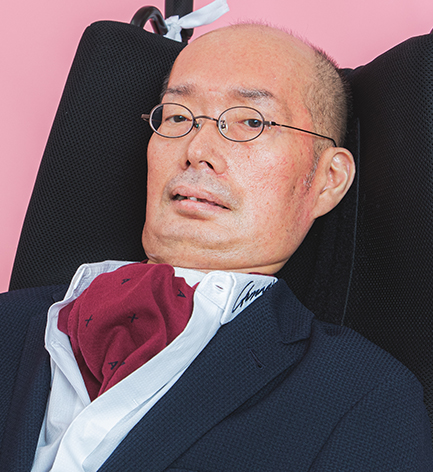 Yasuhiko was born on October 4th, 1957, in Gifu. He is an Amyotrophic Lateral Sclerosis (ALS) patient. He is also a generally paralyzed guitarist and the Vice President of Earth Inc. After graduating from Minami prefectural high school and then from Takushoku University with a degree in economics and political science, in 1982 Yasuhiko started his career as a salesman in Sakata Watchmakers Inc. In 1999, when he was 41 years old, Yasuhiko suddenly became unable to hold chopsticks, toothbrushes, and pens properly. The following year, in May, he was diagnosed with ALS. The paralysis spread through his body. In 2002, he wore an artificial respirator and a gastric fistula. In 2008, the last moving part of his body, the middle finger on his right hand, became paralyzed. Currently, Yasuhiko uses a teeth-based censor to operate his computer and creates poems, songs, and fairytales. He also uses a communication machine called “Den-no-Shin” to give public lectures. Yasuhiko lives in Tokiwa-daira, Matsudo.
Yasuhiko was born on October 4th, 1957, in Gifu. He is an Amyotrophic Lateral Sclerosis (ALS) patient. He is also a generally paralyzed guitarist and the Vice President of Earth Inc. After graduating from Minami prefectural high school and then from Takushoku University with a degree in economics and political science, in 1982 Yasuhiko started his career as a salesman in Sakata Watchmakers Inc. In 1999, when he was 41 years old, Yasuhiko suddenly became unable to hold chopsticks, toothbrushes, and pens properly. The following year, in May, he was diagnosed with ALS. The paralysis spread through his body. In 2002, he wore an artificial respirator and a gastric fistula. In 2008, the last moving part of his body, the middle finger on his right hand, became paralyzed. Currently, Yasuhiko uses a teeth-based censor to operate his computer and creates poems, songs, and fairytales. He also uses a communication machine called “Den-no-Shin” to give public lectures. Yasuhiko lives in Tokiwa-daira, Matsudo.
Five years ago, I ran in the Matsudo City Council election. I can imagine how reckless that might have seemed from the outside. Perhaps many people wondered whether this man was capable of introducing any original policies or, for that matter, of doing anything at all. After all, I am a candidate who is disabled, or rather, who has one of the severest disabilities which requires him to constantly wear an artificial respirator. No wonder people were surprised. In this election, I would like to emphasize a point I always make, namely, that “some things can only be understood by disabled people, and that they bring strength to our system.” Still, the goal to which I strive for is a society where the distinction between disabled and able-bodied people has become irrelevant. Currently, I reflect that ideal into my theory that “humans are as such valuable, and that the value of life is equal for all.”
A few words about the current election for the House of Councilors. After I become elected, the people who will work with me—in other words, the members of parliament—will have to make adjustments to make sure that we build a healthy relationship and have constructive conversations. My hope is that the Japanese people will witness this and change their attitude toward disabled people. Even now, in my organization called Earth, the staff members have made some ingenious adjustments to ensure that meetings proceed smoothly when I participate. After talking face-to-face with party leader Yamamoto, I have come to believe that he will make sure such measures are taken, and that he will provide a role model for the rest of the world on how to relate to a disabled person. I decided to run because I wanted to help him on that journey.
Teruko Watanabe
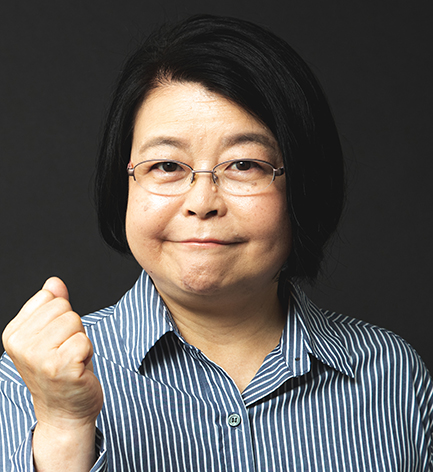 Teruko is a single mother and former temp worker. She is also Steering Group Member at the Society for Study of Working Women and Steering Group Member at Labornet Japan. After dropping out of Musashi University’s sociology program in March 1980, Teruko’s partner suddenly disappeared in 1985 when she was 25 years old, leaving her with her two children. Since then, she has worked as a kindergarten cook, insurance salesperson, etc., until in 2001 she started working for a temp agency. In December 2017, the agency, for whom Teruko worked for 16 years and eight months, laid her off. Under the pseudonym “Hiromi Uyama,” she testified before the House of Councilors Committee on Health, Welfare, and Labor as a temp worker, where she presented the realities on the ground of temp work.
Teruko is a single mother and former temp worker. She is also Steering Group Member at the Society for Study of Working Women and Steering Group Member at Labornet Japan. After dropping out of Musashi University’s sociology program in March 1980, Teruko’s partner suddenly disappeared in 1985 when she was 25 years old, leaving her with her two children. Since then, she has worked as a kindergarten cook, insurance salesperson, etc., until in 2001 she started working for a temp agency. In December 2017, the agency, for whom Teruko worked for 16 years and eight months, laid her off. Under the pseudonym “Hiromi Uyama,” she testified before the House of Councilors Committee on Health, Welfare, and Labor as a temp worker, where she presented the realities on the ground of temp work.
I am 60 years old. My employer, a temping agency for whom I worked for 17 years, laid me off, just like that. “As long as temps remain temps, we can get rid of them no matter how many years they worked.” “We don’t give any retirement payments to temps.” Those were their words. I felt sick to my stomach. I have always worked harder than the full-time employees. There were months when I did over 100 hours in overtime per month. I was even carried by ambulance from the client site when I collapsed due to overwork. Even then, I was blamed for “poor health management.” I have obtained many certificates. Still, my wage did not go up. I endured power harassment and sexual harassment. I put up with it because I wanted to work for as long as possible. I was then forced to leave my job in the worst possible way, by having my contract terminated.
“Was it because I did not try hard enough?” “Was it the fault of my bad decision to go into temp work?” I decisively answered “no” to both questions. Still, people around me never tire of repeating that “it is your fault for choosing such a precarious career as temp work” and that I should “stop complaining because it all comes down to personal responsibility.”
Half of all working women are just like me, that is, not full-time employees. Because our wages are low, our jobs do not allow us to support our families. I am a single mother. I have lived more than half of my life as a single mother. I have two children. When they were three and one years old, my partner suddenly disappeared. I had no choice but to start looking for a job. How was a person in such a situation supposed to find full-time employment? “If you cannot become a full-time employee, that is your fault,” people say. The Japanese labor market is extremely harsh and cold toward women.
My first priority was to somehow find a way to raise my two children. I went from one job to the next, such as being a cook at a kindergarten or being a salesperson at an insurance company. Throughout the years, I have always wondered why my life was not becoming easier despite all the work I put into it. This is not just about me. Most single mothers are working. They work two or even three jobs at a time. That is because they cannot become full-time employees. Because they have no choice but to work part-time or as a temp worker. The next thing you know, people start criticizing you for choosing work over family and not taking care of your children properly. Meanwhile, in the workplace, because we do not have anybody else to rely on for childcare, we are told that “they take liberties and use their children as an excuse to take days off. Single mothers are useless.” In this situation, how are Japanese women supposed to work while raising children?
I do not want other single mothers, who are doing their best, to go through what I had to go through. I do not believe that I should just mind my own business. I came to believe that we need to change politics and our society. Instead of taking my struggles to my grave, I want that experience to function as the raw, living voice of the struggling people. I want to bring that voice right into the arena of politics.
We no longer live in an era where politics is done by heroes and the elite. I think the Reiwa Shinsengumi is an embodiment of that truth.
(Translated by Kenji Hayakawa. Proofread by Lisa Keating.)
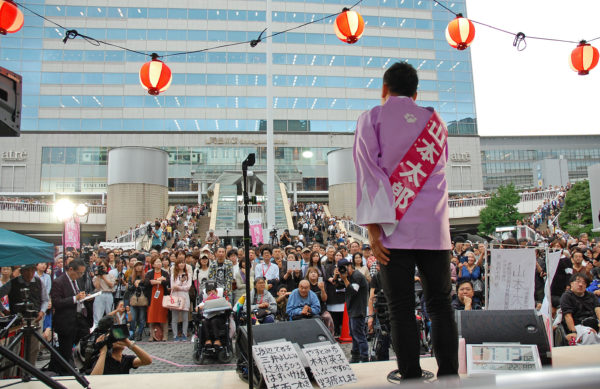
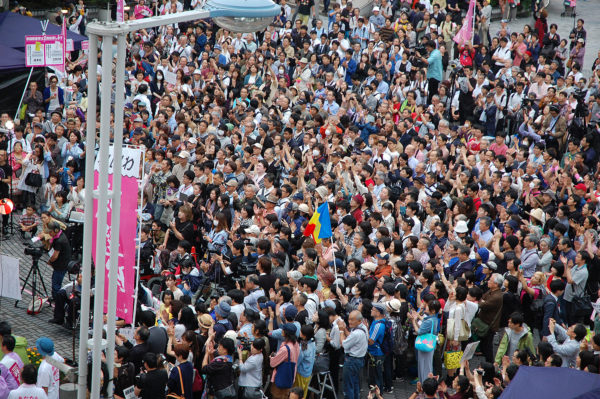
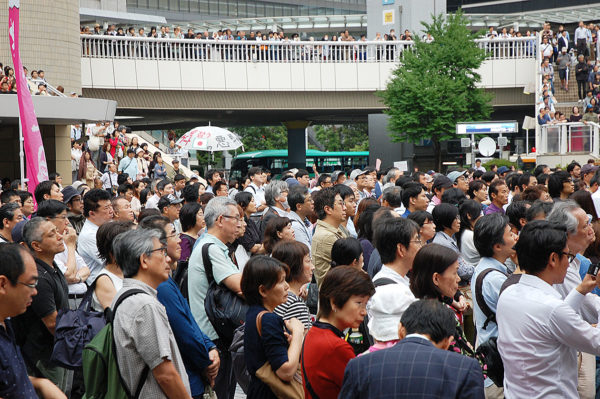
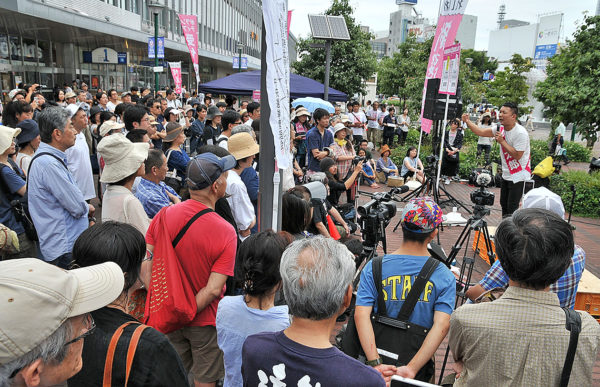
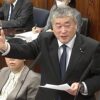

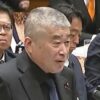
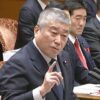
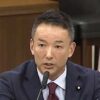
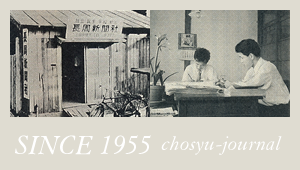










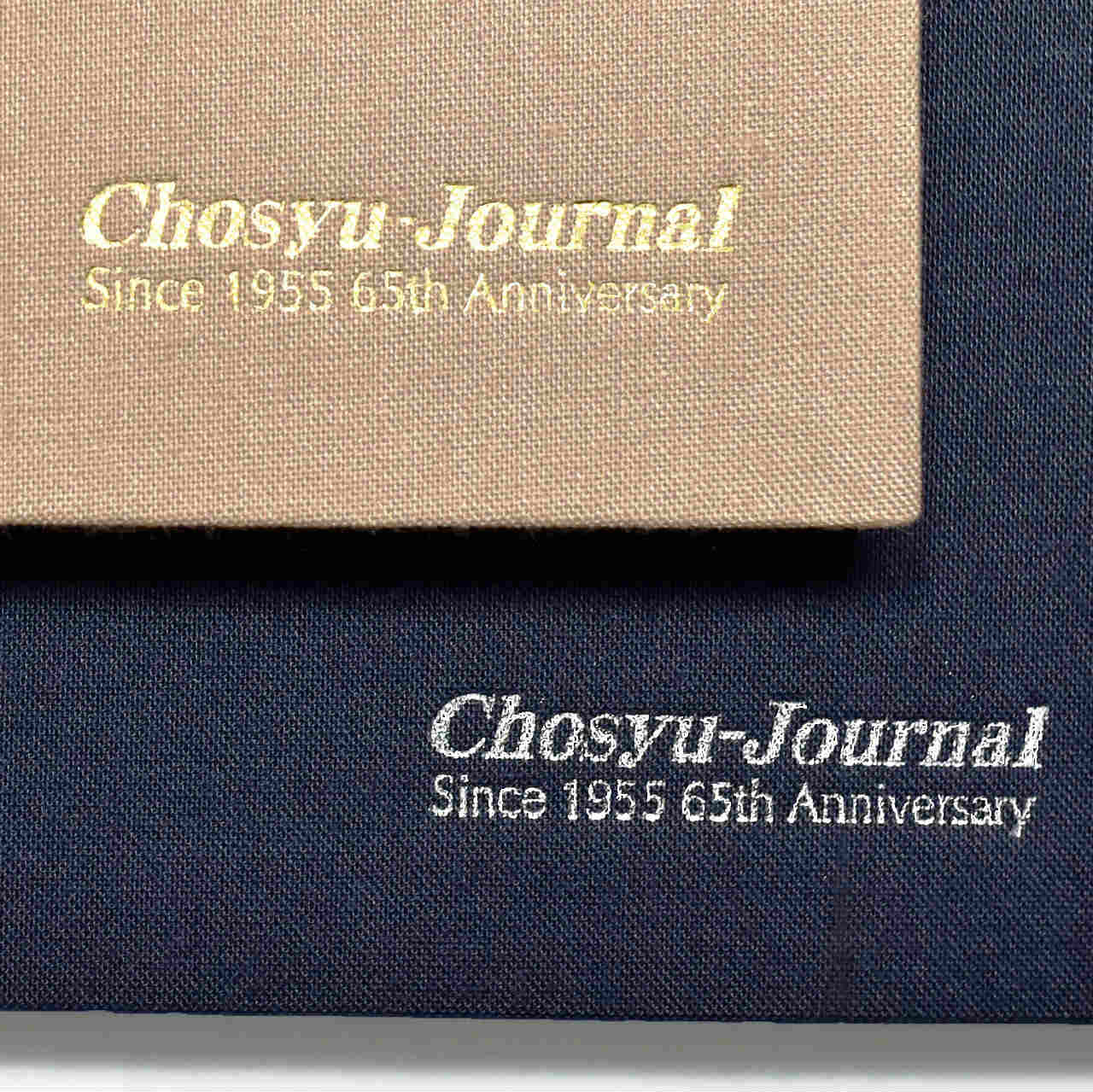
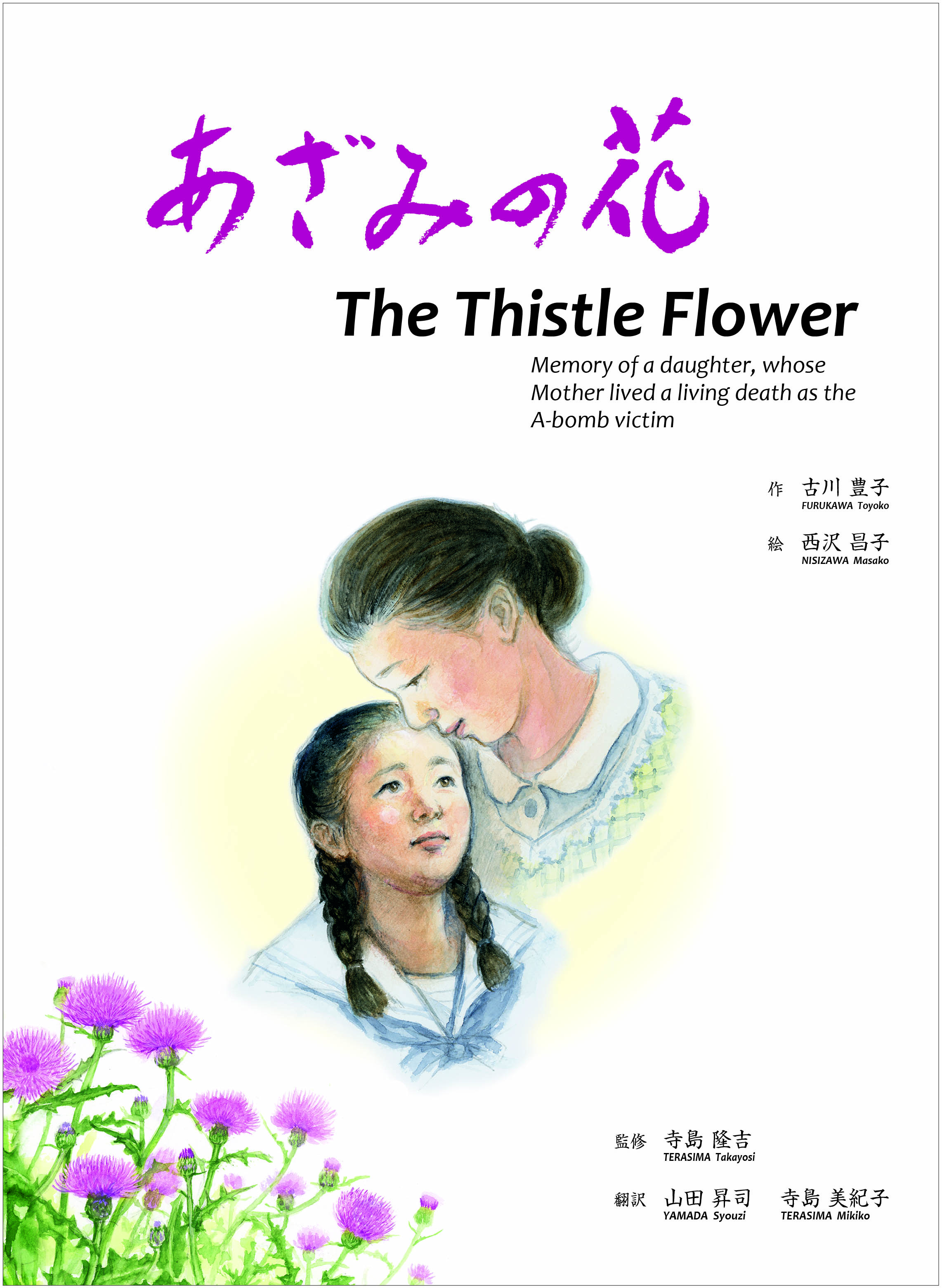
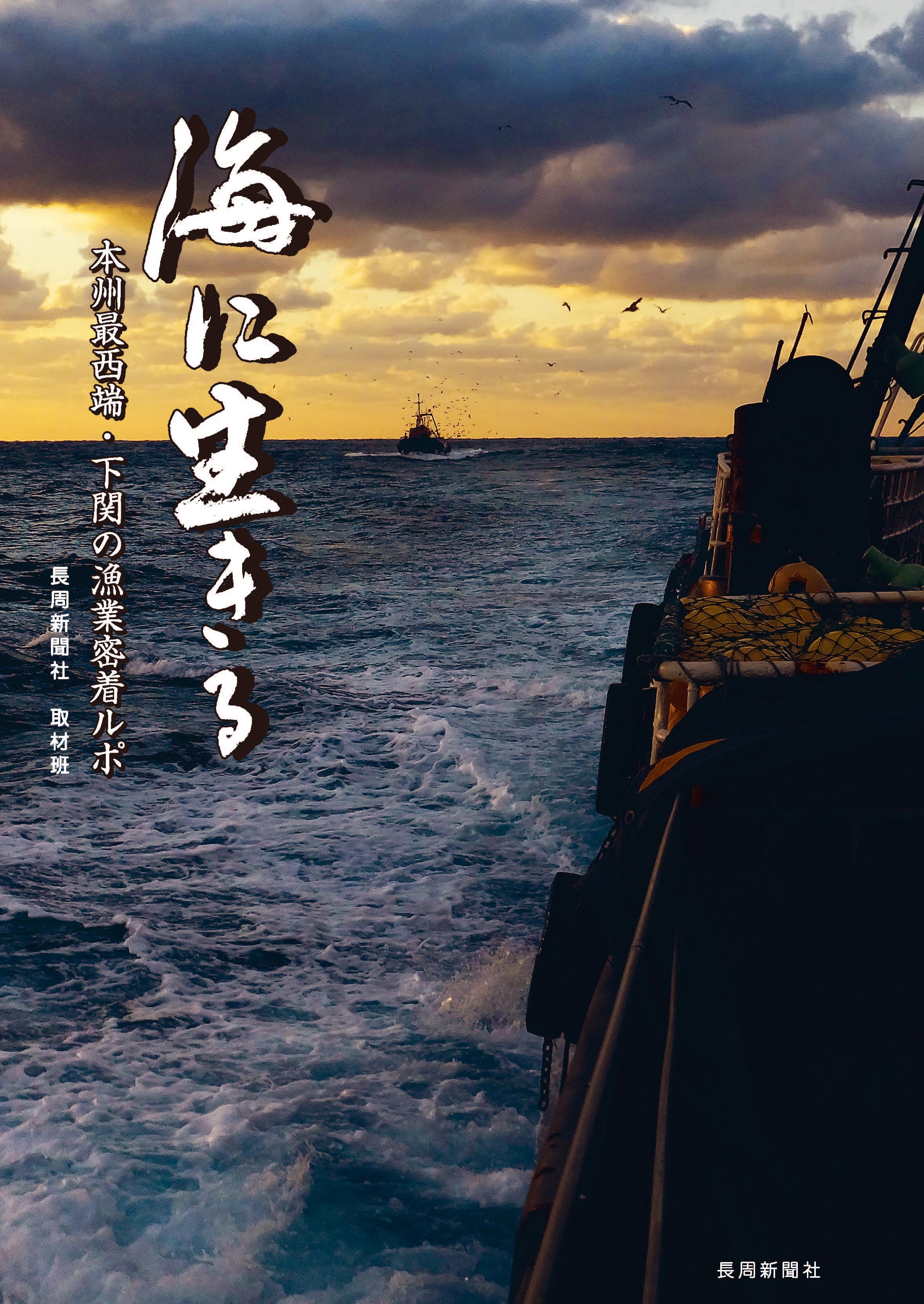



歴史に残るかもしれない素晴らしい記事です。
This is brilliant – thank you, Kenji-san, for translation and Lisa-san, for proofreading. Worth sharing on every platform.